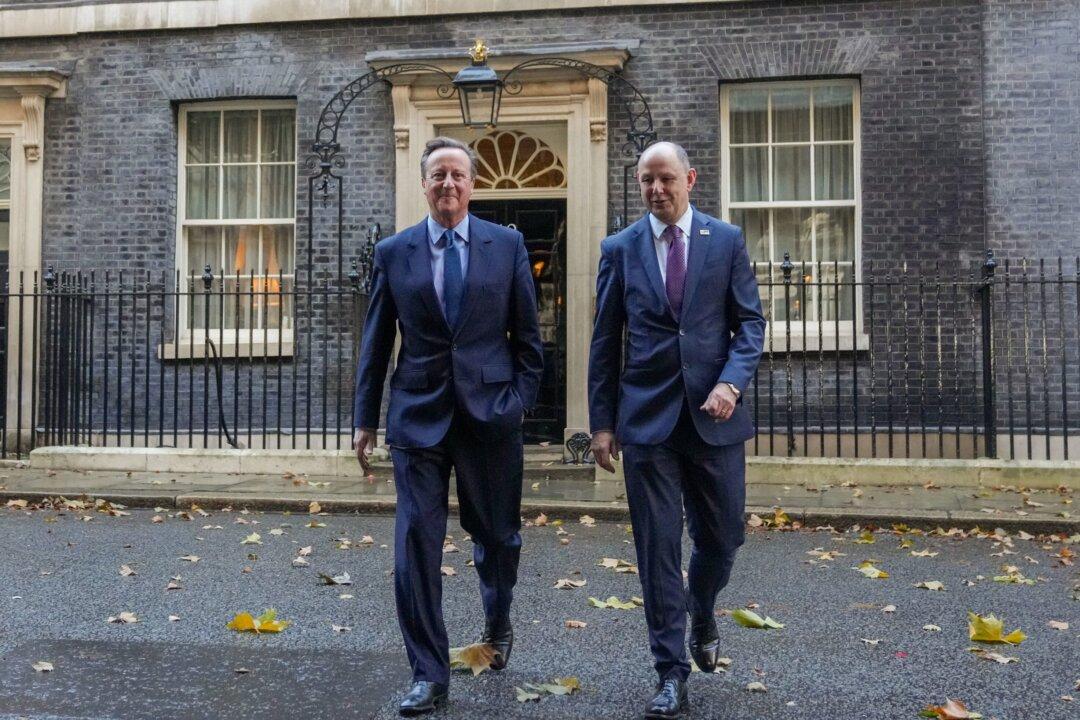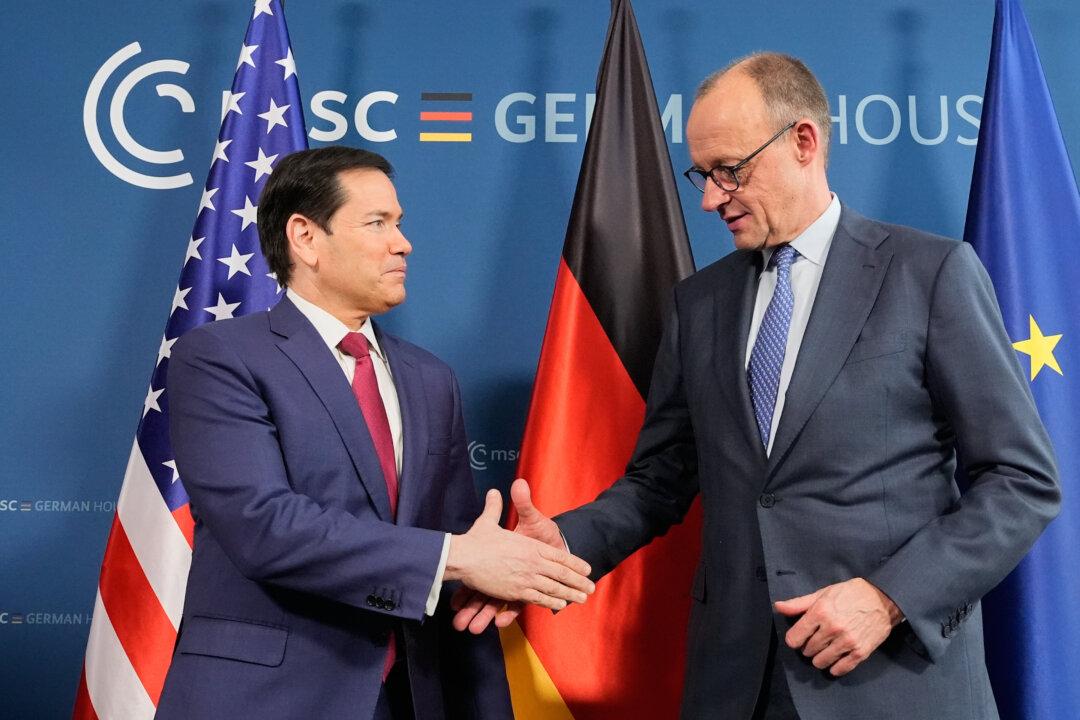Prime Minister Rishi Sunak pulled a political rabbit out of the hat when he appointed one of his predecessors, David Cameron, as the new foreign secretary as part of a dramatic cabinet reshuffle.
Mr. Cameron—who will be given a peerage so he can sit as Lord Cameron in the House of Lords—replaces James Cleverly, who has been moved to home secretary following the sacking of Suella Braverman.





